When we think of the greatest of all time in anything, we find objective facts are difficult to overcome, but at times, subjective views of the individual are factors to consider. Examples of these are all around us. I will stick to the field of athletics, where objective facts abound.
Times and distances are as objective as they come, thus the fastest time or the longest distance determines the winner with few exceptions. An exception is in some field events. An athlete may throw or jump farther in the first round than any throws or jumps in the later rounds and lose the event.
Even though objective facts are extremely difficult to question or challenge, there may be subjective reason to debate their objectivity. We have seen it in many situations and the examples are numerous, such as Carl Lewis in the long jump; he does not have the long jump world record. Mike Powell is the world record holder. Are we to believe Mike Powell was a greater long jumper than Carl Lewis? For me, Carl Lewis, with his impeccable four Olympic and three world championship gold in the long jump, make me say he is the greatest long jumper of all time. If we compare Asafa Powell, the man with by far the most sub-10s in the 100m with Maurice Green, the man with whom the drive phase is associated, we see Asafa’s fastest time of 9.72 as against Maurice’s 9.79. Maurice won one gold and a bronze in the Olympic 100m to go with three world championship golds in the event plus one gold in the 200m. Asafa has two 100m world championships bronzes. Many will say Asafa was the more talented sprinter, but as we know, results in championships prove an athlete’s mettle. If we add Yohan Blake to the mix with his 9.69 and 19.26 clockings, it gets even messier. Yohan has Olympic silver in the 100m and 200m to go with a world championship gold in the 100m. His times surpass both Maurice and Asafa, while Asafa has the most sub-10s while Maurice has the coveted Olympic gold.
At times, the debate is even more difficult to judge and at times one sees subjective reasoning morph into bias. A great example is deciding who the greatest female sprinter of all time is. Florence Griffith-Joyner (Flo Jo) has the official world records for both the 100m and 200m. Flo Jo’s times of 10.49 and 21.34 over the 100m and 200m, respectively, were way out there, leading many female athletes over the years to question the 100m record ratification in particular. In all fairness, for the purposes of comparison, we can only go by the official times.
Flo Jo had one great year and nothing else even come close. Elaine Thompson-Herah, with a best of 10.54 and 21.53 over the 100m and 200m, respectively, also won the events in back-to-back Olympics. Who then is the greatest female sprinter? Add Shelly-Ann Fraser-Price with a best time of 10.60, two gold, one silver and a bronze in the Olympics 100m plus four world championship gold medals; this accomplishment definitely puts her into the reckoning for greatest female 100m sprinter of all time. The problem here, though, is times versus the winning of major championships.
Consider Flo Jo’s 10.49 and 21.34 Olympic double, Elaine’s 10.54 and 21.53 double and Shelly-Ann’s 10.60, two Olympic championships plus silver and bronze and 4 world championship golds. Both Flo Jo and Elaine are superior 200m runners compared to Shelly-Ann but in the 100m, I beg to differ. Some will want to use head-to-head matchups to break the deadlock. Others will use times. As is shown with the great Carl Lewis and Asafa Powell, time and/or distance may not be sufficient to determine who is greater. Of course, there are more comparisons of world record-holders versus champions. Another that comes to mind is Karsten Warholm versus Edwin Moses in the 400m hurdles. Karsten has one Olympic gold, two world championship golds plus an unbelievable world record time of 45.94. He is one of five to go under 47 seconds; the only one under 46 seconds and has four of the top ten fastest times. Edwin has two golds and a bronze.
Politics most likely cost Edwin the 1980 Olympic gold. In this case, a race-winning streak of 122 races done by Edwin Moses is difficult to ignore. My bias towards Edwin Moses may be why choosing Karsten is a difficult pick. Karsten is still competing, and if he continues to win championship medals to go with his otherworldly world record, then there will be no doubt in my mind that he will surpass Edwin Moses to become the undisputed greatest.
There are cases where there are some differences in medals but for me, one has to go with the world record-holder. Another example is Jonathan Edwards and Christian Taylor in the triple Jump. The former has one gold and one silver at the Olympics to go with two gold, 1 silver and two bronze medals at the world championships; the latter has two Olympic golds and four world championship golds. In this instance, Jonathan Edwards is the world record holder with enough championship medals to put him on top of the heap.
There are times when the greatest of all time is such that there is no debate when you compare them to others in their event. Some might bring in the difference between eras or other possibilities but in reality, there is no objective argument to question that individual being called the greatest of all time, such as Jackie Joiner-Kersee in the heptathlon, Alfred Oerter in the men’s discuss, David Rudisha in the 800m and Usain Bolt in 100m and 200m come to mind. These four athletes define championship pedigree. Jackie won two gold medals in both the Olympics and world championships in the heptathlon. She is one of only four to surpass 7000 points. Jackie also has the top six out of the top ten highest scores ever. We may be able to find equal but not a more dominant athlete in any event. Oerter is a four-time Olympic discus champion and possibly could have added another medal but for the 1980 Olympic boycott by the US government. He always performed when it mattered most and the Olympics is where it matters most to all athletes, and so Oerter is the epitome of a big-time performer.
The great David Rudisha defined the 800m, where from 2010 to 2012, Rudisha set six of the eight fastest 800m times ever run. He will forever be remembered for the new world record he set at the 2012 London Olympic Games, where he led from start to finish, pulling almost the entire field to run lifetime bests. Usain Bolt redefined champion performance sprinting, leaving no doubt as to who is the greatest of all time. Bolt has both the world and Olympic records in the 100m and 200m and is the only track athlete to win three Olympics gold medal in any single sprint event – and he did it in both the 100m and 200m. Bolt also dominated the top times ever run in these two events.
Choosing the greatest of all time in athletics may seem like an objective thing because of time and distance being absolute but at times, subjective reasoning is required. Other times, using both subjective and objective reasoning will still create debate. Then there are times when the athlete is so dominant or wins over such a period of time that there is no question as to who is the greatest of all time.
Others may disagree with my selection for this article, but few would objectively disagree with the choice of Alfred Oerter, Jackie Joyner-Kersee, David Rudisha and Usain Bolt as greatest-ever in their events. Their performances in the Olympics and world championships for three of four are beyond question. Oerter may not have the world record but his performances at the Olympics is what all athletes crave. As for Bolt, Joyner-Kersee and Rudisha, their records are so dominant, it will take the extraordinary to come close, much less break them.


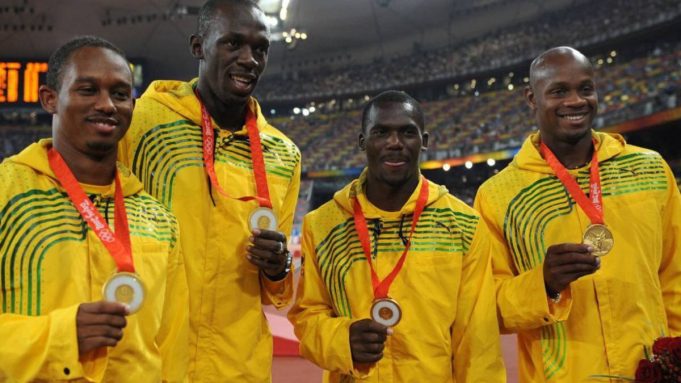
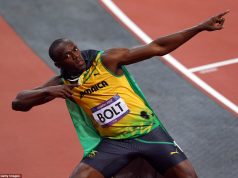
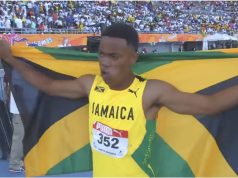


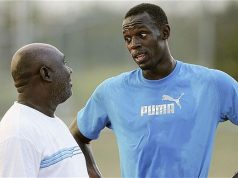

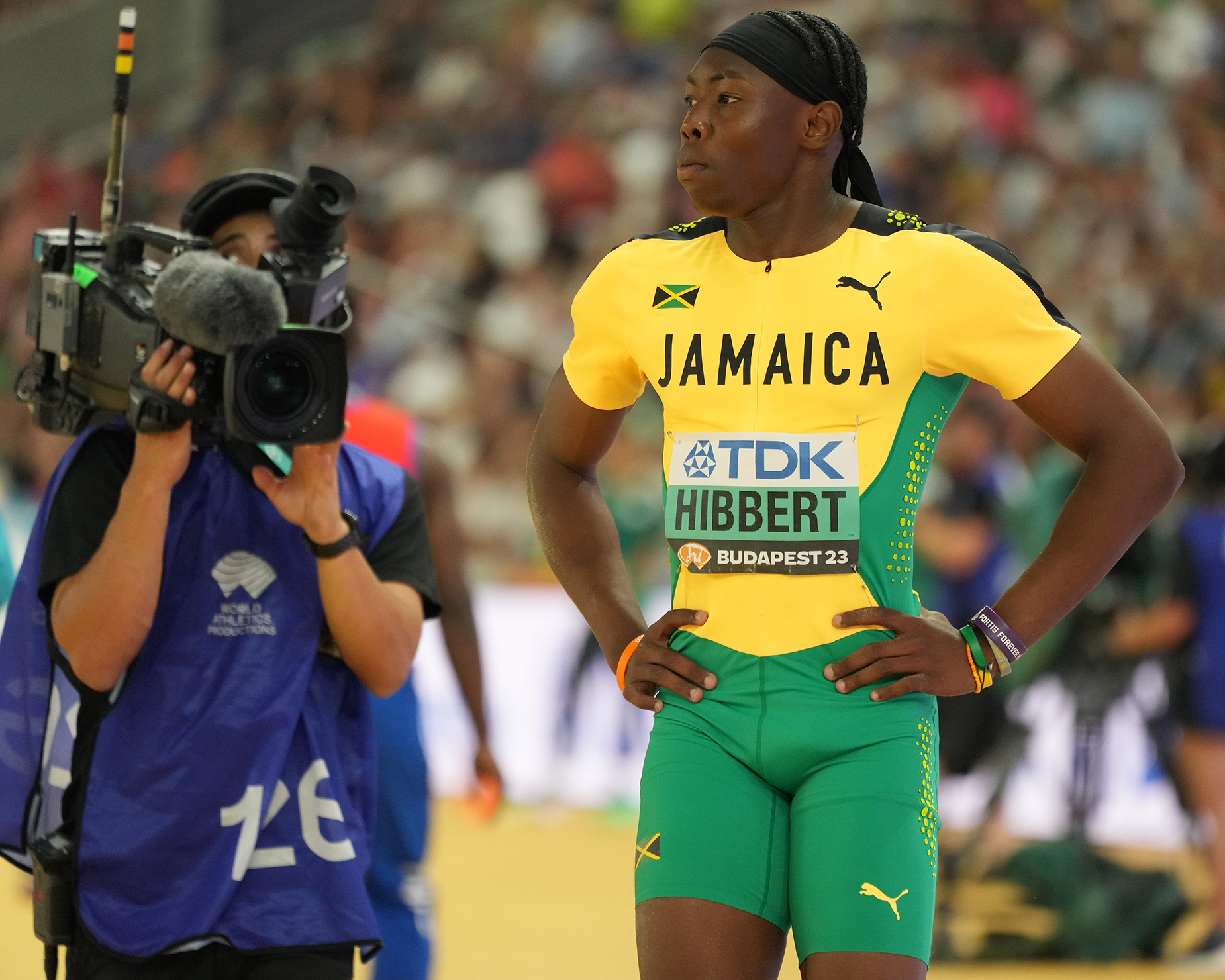


No need to they all did their part
My boys
My 4×100 team
You don’t. There’s no need for such comparisons.